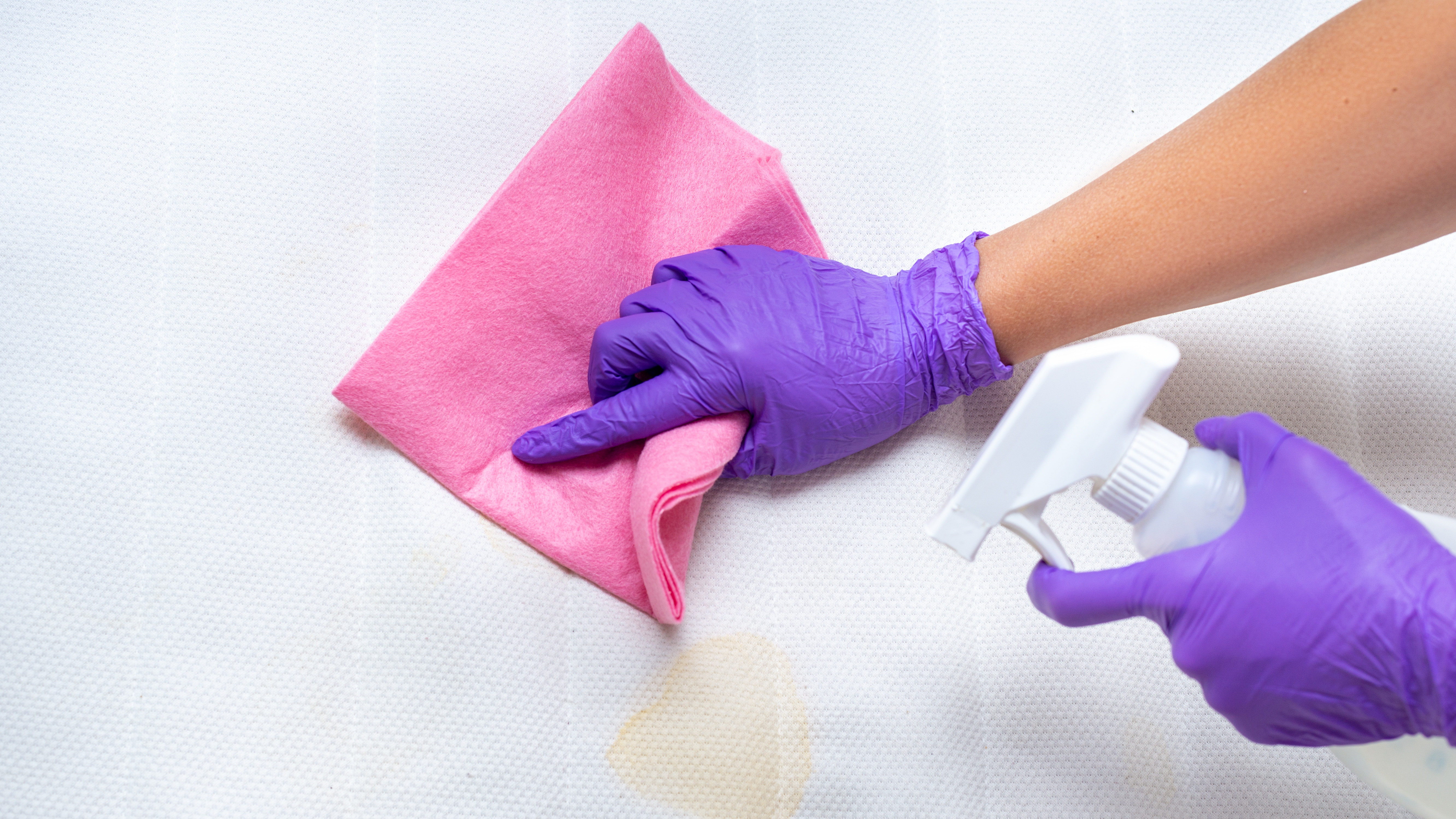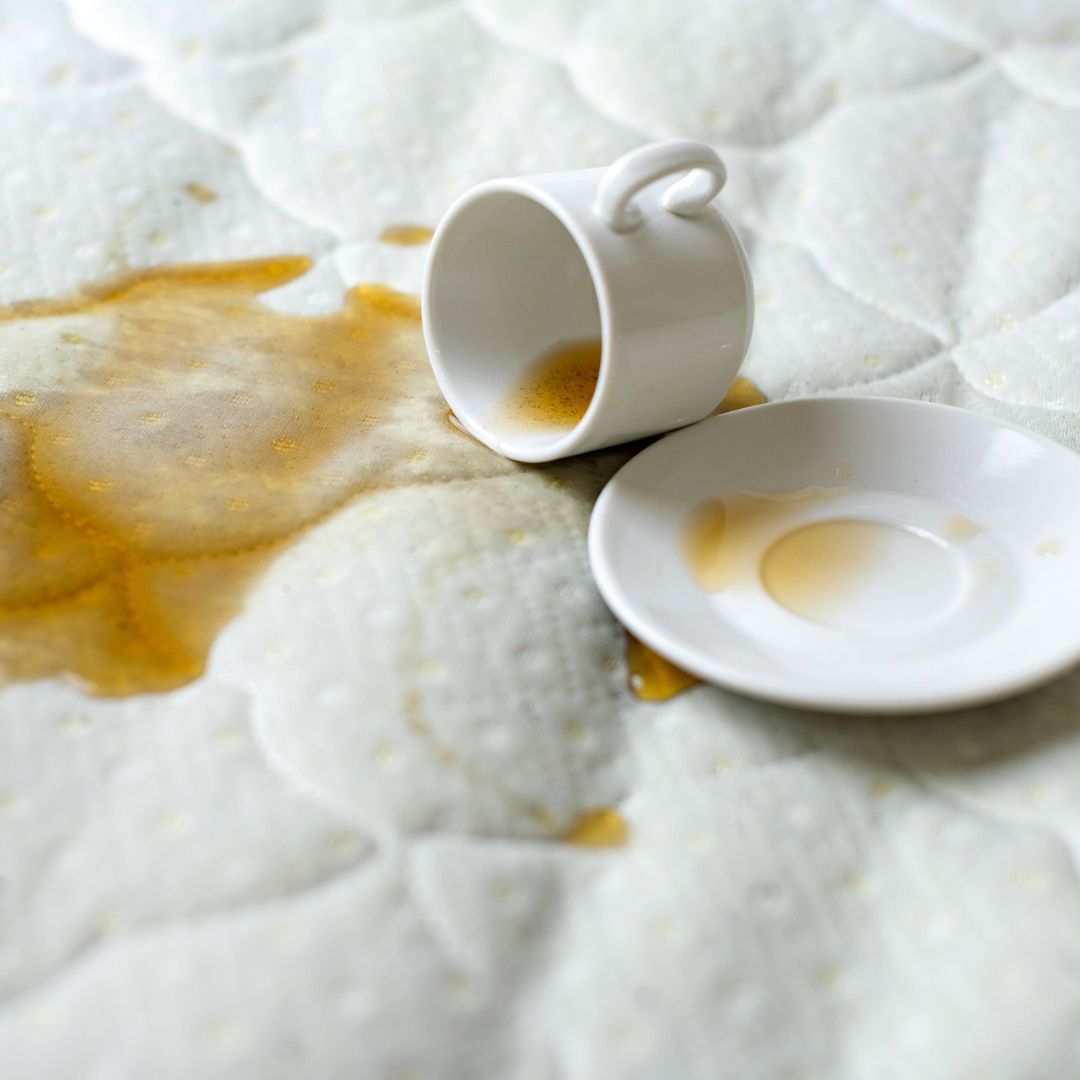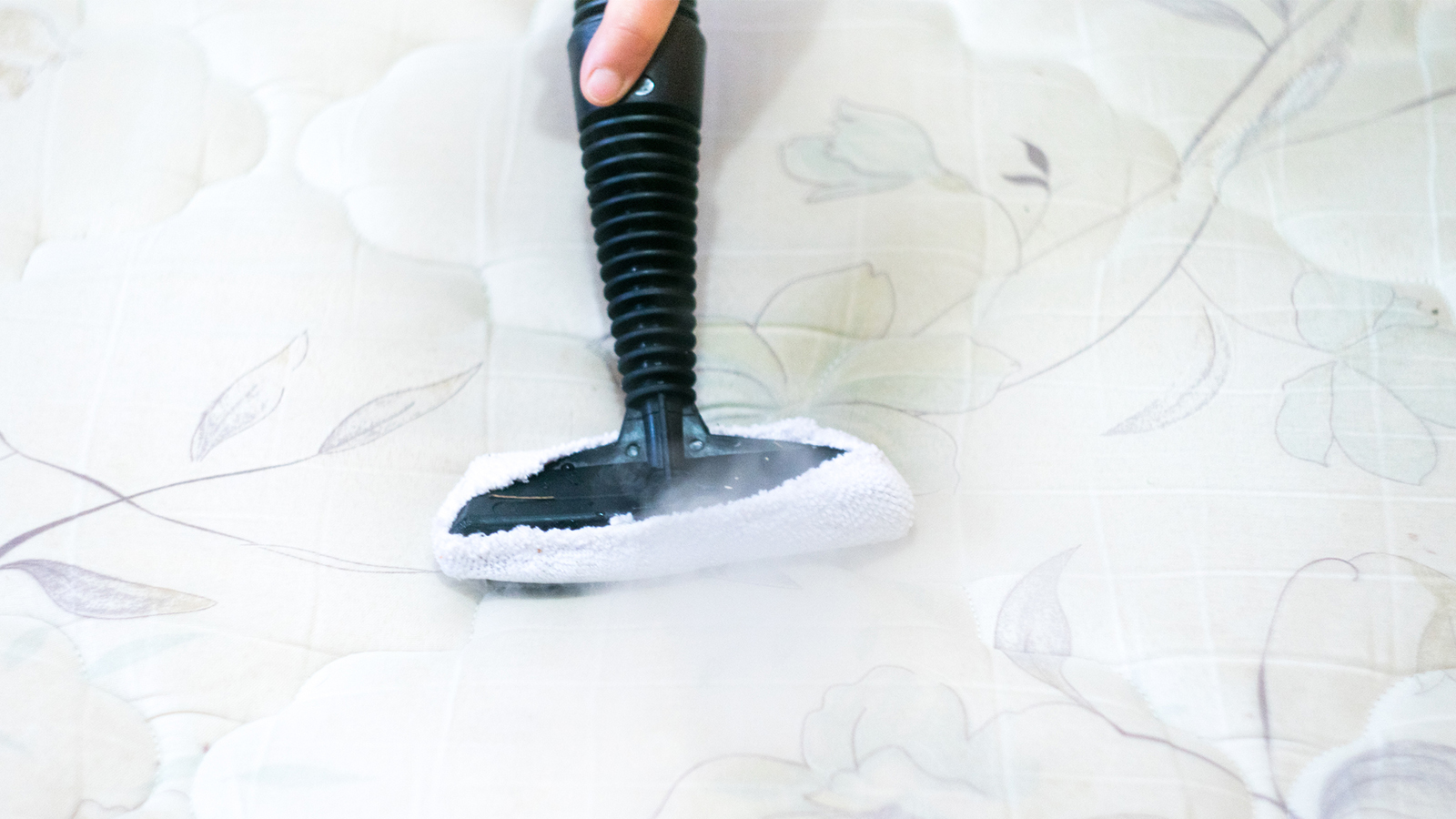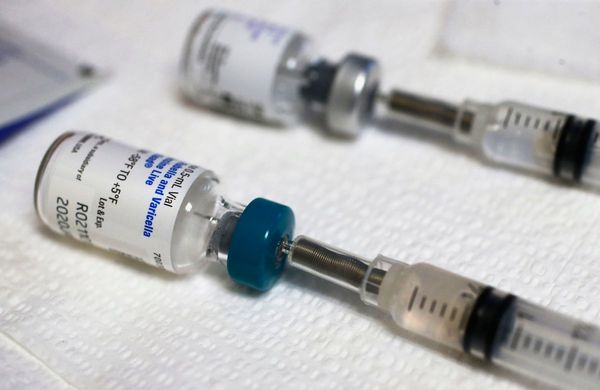
Our mattresses are a place for rest and relaxation but over time they can accumulate stains, a build-up of dead skin, and even home to dust mites, bed bugs and pet urine. So learning how to deep clean your mattress at home can be the key to a fresher sleep space and result in a night of better sleep.
Even the best mattress require regular cleaning and maintenance to keep it hygienic. If you suffer from allergies, have pets or are prone to spills and accidents then deep cleaning your mattress becomes even more important. Not only is deep cleaning your mattress good for sleep hygiene, removing sleep-impacting allergens like dust mites and pet dander can help you sleep better, too.
During this step-by-step guide, we will walk you through how to deep clean your mattress at home and share with you some handy tips on getting rid of dust mites, bed bugs and pet urine stains.
What you need to deep clean your mattress
- Rubber gloves
- Baking soda
- White vinegar
- Water
- Spray bottle
- Vacuum cleaner
- Microfiber cloth
You don’t necessarily need any specialist equipment when it comes to deep cleaning a mattress at home. However, some different machines or attachments can help - but they’re not essential. If you don’t have baking soda or white vinegar then you can still do a good job without those things by just mixing soap and water together.
You may also want to add a couple of drops of essential oil to make it smell nice. But I find using washing laundry detergent great for mattresses as it smells good and it’s specifically formulated to lift dirt and stains.
Before you start your deep clean it’s really important to read the care label on your particular mattress brand. This will give you all the information you need to ensure that you don’t cause damage to your mattress. For example, if you have an all-foam mattress or your mattress has foam layers, you mustn’t get these wet, it’s not difficult to clean a memory foam mattress but you need to follow some specific rules.
How to deep clean your mattress
Before you begin your mattress deep clean, remove all your bedding including your mattress protectors or toppers. Read the care instructions for each piece of your bedding and run through the wash whilst you’re performing the rest of the clean.
Step 1. Thoroughly vacuum the mattress
The first step as you embark on your deep clean is to thoroughly vacuum your mattress. You need to ensure that you get right inside the seams and edges to dislodge any stubborn dirt. It's inside the seams where bed bugs and dust mites also like to hide, so take your time to make sure that you get every inch.
If you do have a machine such as the Bed Vacuum Cleaner Mattress Vacuum with UV that we mentioned above, then this will help with the first round of sanitation of the mattress bed. Once you've completed your vacuum, set this aside as you will need it again a little later.
Step 2. Spot clean any obvious stains
Yellow stains on your mattress are common, and can be caused by natural body oils, sweat or pet urine. Any fresh stains should be tackled first. Blot up any liquid with a clean absorbent cloth. It can be tempting to rub, but this will just spread the stain.

If you're dealing with pet urine then it's best to purchase some enzyme cleaner like this one from Rocco and Roxie on Amazon which costs $19.99 for two bottles. Enzyme cleaners do a great job on tough stains but also can help remove and lift any lingering odors. Follow the specific instructions of the brand that you're using but dab lightly to avoid soaking the mattress.
If you're working with dried in stains then baking soda acts as a natural deodorizer and mild abrasive. Sprinkle a generous amount over the stain and let it sit for 30 minutes to an hour although if you can, the longer you leave it on the better.
3. Vacuum again
If you've used an enzyme cleaner then be sure to let this completely dry before you use the vacuum. But if you have sprinkled baking soda over your mattress now is the time to vacuum it off. It's worth going over your mattress several times as you don't want to leave any trace of the baking soda behind as if it gets wet, it will clump together and leave a pasty residue.
4. You've lifted the stains, now remove them
The baking soda will have done a great job of neutralising the stains and will have helped to lift them. Now it's time to remove them entirely. You can do this by mixing together a gentle laundry detergent with some water and a small capful of white vinegar.
Use a spray bottle to spritz the area and then dab the area with paper towels to remove the staining. Be sure to change your paper towel after a couple of dabs so that you're keeping it clean. Keep dabbing at the stain until it's completely gone.
You can follow this step as many times as you like so long as you don't get your mattress too wet, or else it may become a magnet for mold and mildew. Use your water sparingly and blot away excess moisture as you work.
5. Use a steam cleaner or carpet cleaner

If you want to deep clean like a professional then it is worth investing in a steam cleaner. However, moisture and extreme heat can damage a memory foam mattress, so check what you mattress is made of before steam cleaning. Innerspring and hybrid models can cope with this method of cleaning. As always, make sure you take note of your manufacturers care instructions before embarking.
It's really important that you don't get a memory foam mattress too wet or too hot. Foam will start to disintegrate once it gets wet or when exposed to extreme heat from a steam cleaner.
Steam cleaning will eliminate allergens, dust mites and bacteria without needing to use chemicals. When you steam clean your mattress hold the steamer a few inches away from the surface of the mattress and use it on a medium heat setting.
Slide the steam cleaner across the bed in long, even strokes, but ensure it's just damp not soaking. If it feels like its too wet then you need to raise the steamer up as that means it's just too close to your bed. Pay particular attention to the sides and any seams of the mattress (where bed bugs can linger) for a thorough clean.
6. Leave the mattress to dry
You need to make sure that your mattress is completely dry before you consider putting your bedding back on. Open all the windows and leave your mattress to air dry fully. If it's not dry the you'll risk the growth of mold and it'll be pretty uncomfortable to sleep on. To check your mattress is fully dry take a microfiber towel and dab around the surface of the bed to ensure that no excess moisture is present.
7. Clean the bedframe
Before replacing your bedding, it's a good idea to dust and vacuum your bed frame. Pay attention to all areas, including the slats. If your bedframe is upholstered you can follow the above method for cleaning it. If it's made from wood or metal just run a damp cloth over all areas.
Mattress cleaning FAQs
Is it safe to steam clean your mattress?
If you have an innerspring or hybrid mattress then steam cleaning can be a safe and effective way of cleaning your mattress. Steam cleaning can help to kill bacteria, allergens and dust mites by using high heat rather than harsh chemicals which can damage the fibers of the mattress.
If you have a memory foam mattress then under no circumstances should you steam clean your mattress. Memory foam is very sensitive to both heat and water and steam cleaning will lead to damage of the material and mold growth if it doesn't completely dry out. If you have a memory foam mattress then it's best to regularly vacuum and spot clean the area.
If you are going to steam clean your mattress then always use the upholstery attachment to avoid getting your mattress too wet. If you don't have one of these you could wrap a clean towel over the steamer head for additional protection.
How often should you deep clean your mattress?
Ideally you should deep clean your mattress every six months. This will help to remove dead skin, allergens, pet dander, and even dust mites that accumulate over time.
However, this is just a rough estimate of how often you should be doing it. If you have asthma or allergies then you may benefit from a deep clean every three months. Likewise, if you have pets and share your bed with your animals, you may need to increase your cleaning schedule.
Even if you can't deep clean your mattress every six months, it's important to maintain basic mattress hygiene by vacuuming it on a regular basis and airing it every time you change your bedding to keep it fresh.
Will deep cleaning my mattress help me sleep better?
Aside from the cleaning making you so tired that you'll be out like a light the moment your head hits the pillow, deep cleaning your mattress will help you to sleep better.

Deep cleaning your mattress at home will help to remove the allergens that may result in congestion, itchy eyes, and sneezing. Once those symptoms are gone, the you'll be able to enjoy a more restful sleep.
Also, a clean mattress that is free of dirt, dust, sweat, and unpleasant odors can contribute to a more relaxing sleep environment. Whilst cleaning your mattress will have a huge effect on the way you sleep, there are other factors that contribute to good sleep hygiene such as a regular sleep schedule, a bedtime routine and ensuring your room is comfortable to sleep in by adjusting the light, noise, and temperature.







